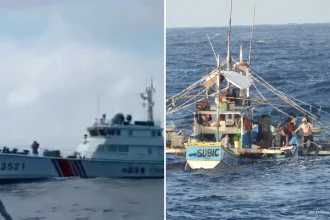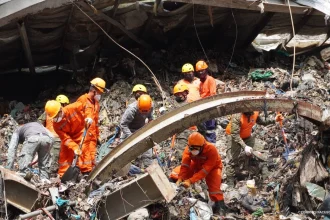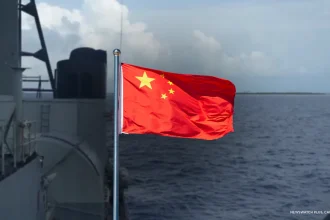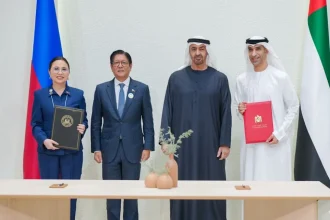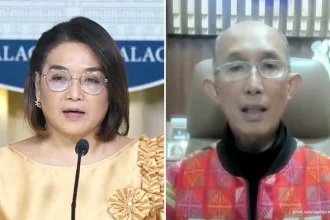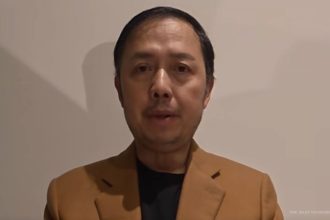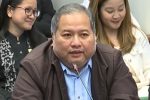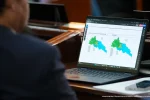
Metro Manila, Philippines – Philippine and Chinese officials were engaged in a verbal tussle over conflicting claims in the South China Sea during a global security conference in Germany at the weekend.
Foreign Affairs Secretary Enrique Manalo said the Philippines is exercising its rights over the exclusive economic zone in the West Philippine Sea as he faced a former foreign affairs official of China at the Munich Security Conference on Saturday, Feb. 15.
When asked if it was “quite peaceful” in the South China Sea, Manalo answered in the panel discussion: “There’s not a conflict but there’s certainly high tensions and the potential for the tensions to even rise further.”
Manalo said the Philippines is following international law in undertaking activities within its exclusive economic zone (EEZ).
“But when another country, let’s say, applies its own domestic laws to certain areas within our EEZ, then it really does create the kind of tension that we have been experiencing, especially over the last two years,” he said.
Manalo said following the United Nations Convention on the Law of the Sea “will be the best way to reduce tensions.”
“But if this is not the case, then the rich, the powerful, who will actually be in a position to assert their own laws against the weaker countries, I believe then we’re in for a period of even greater tension,” he said.
(2/2) The 🇵🇭 remains steadfast in defending the rules-based international order and the rule of law, in particular, UNCLOS. pic.twitter.com/s3bTobKnSc
— Enrique A. Manalo 🇵🇭 (@SecManalo) February 15, 2025
On the other hand, former Chinese vice foreign minister Fu Ying said China is concerned with the “shadow of the (United States)” behind the claimants in the South China Sea, adding that Beijing has to “take responsibility for regional stability.”
When asked if China could “make nice” with its Southeast Asian neighbors, Fu said: “You talk like China is making a game with the United States, trying to either pull this neighbor close or kick that neighbor away. That’s not the Chinese way of thinking.”
She said China cannot agree with the Philippines occupying Second Thomas Shoal, or locally known as Ayungin Shoal, and Sabina Shoal, or the Escoda Shoal, “because that is a violation of the DOC (Declaration on the Conduct of Parties in the South China Sea).” The DOC signified the intent between the Association of Southeast Asian Nations and China in 2002 to set the stage for a more binding agreement that has been delayed for decades.
Beijing calls the Ayungin and Escoda shoals Renai Jiao and Xianbin Jiao, respectively, deploying many ships to the disputed areas.
“If the Philippines can take new rocks, how can you stop others? How can you stop China from taking more? We are capable. There’s no problem. But we are exercising constraints because we are committed to this DOC. So that’s a red line no one should be allowed to cross,” Fu said.
She also described the Philippine move to run aground the BRP Sierra Madre in the Ayungin Shoal as a “kind of naughtiness [that] shouldn’t be encouraged.”
Manalo was firm that the Philippines was not “provocative” in its actions within the EEZ, adding that countries like Japan, Australia, South Korea, Canada, and New Zealand were supportive of Manila.
China rejects the 2016 arbitral award that invalidated its sweeping claims over the whole South China Sea.
Meanwhile, Singaporean Defense Minister Ng Eng Hen said Chinese coast guard patrols have gone up in the South China Sea, with around 2,000 ships a day, or a 20 percent increase from the previous year.
He also said there’s an average of 200 Chinese militia vessels around disputed features, which was a 35 percent increase from 2022.






